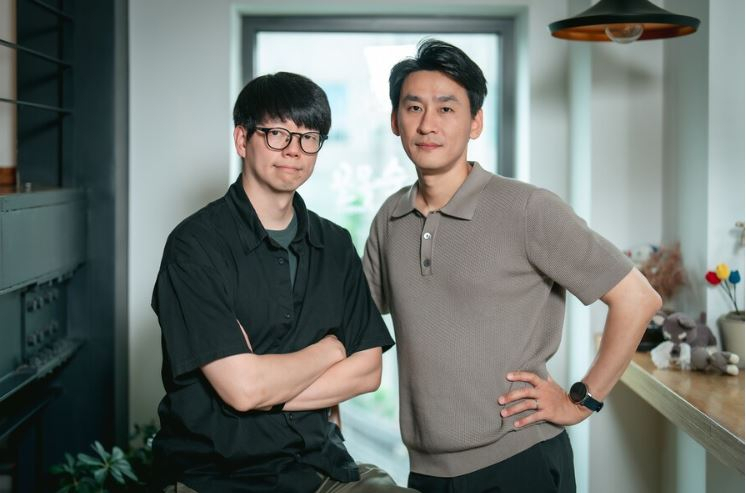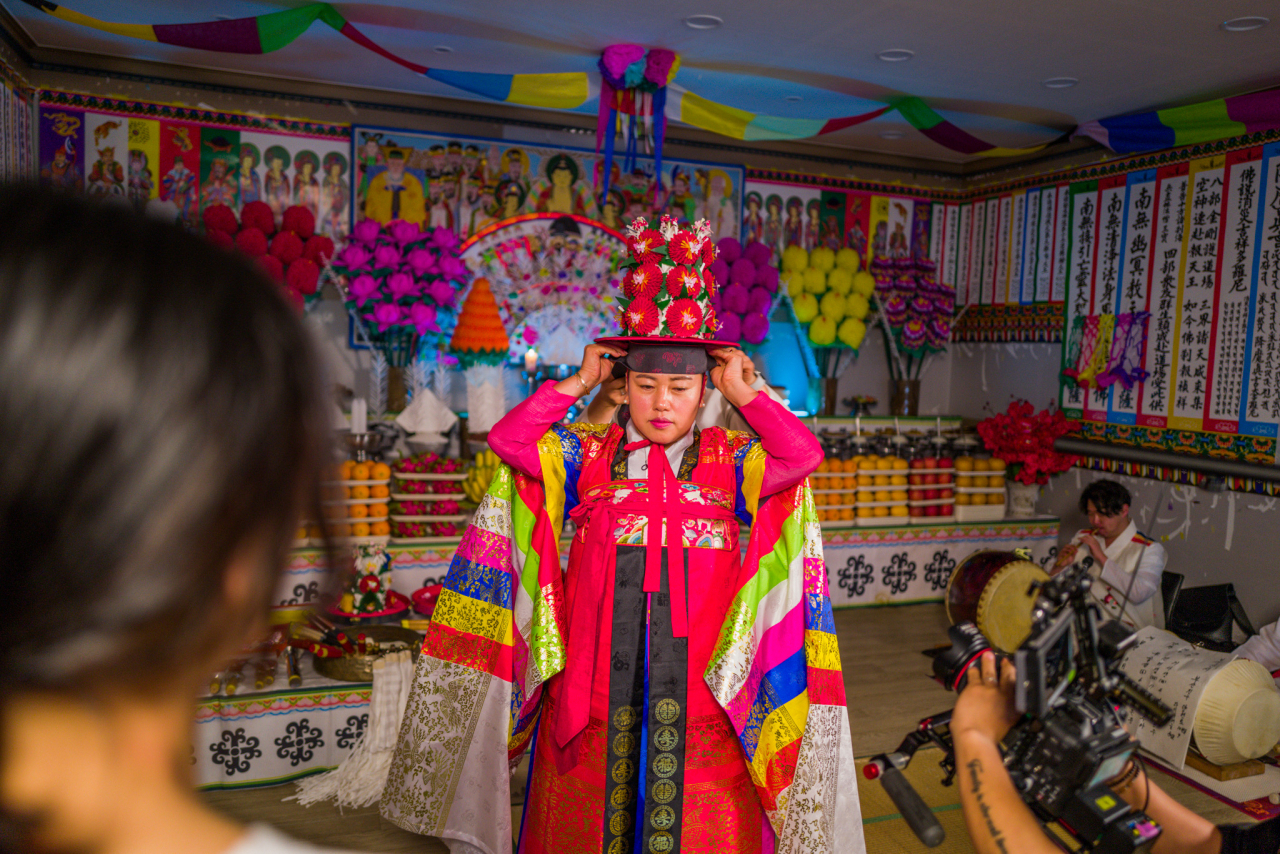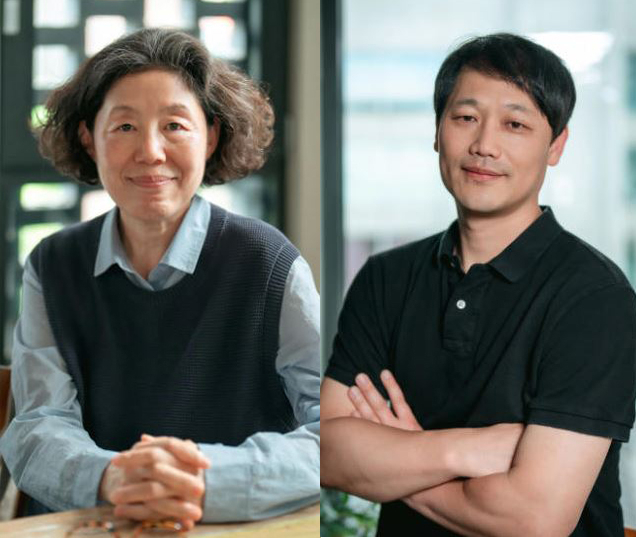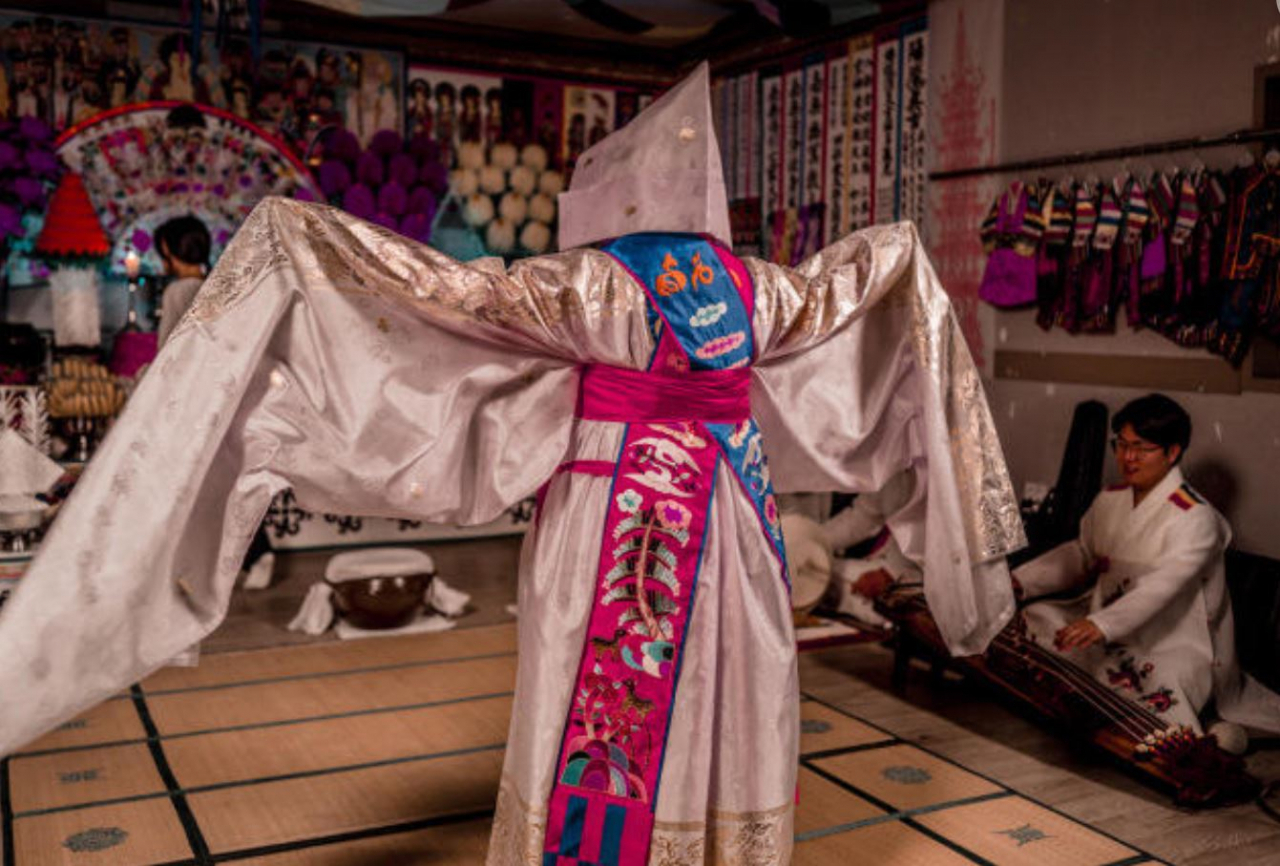 |
Producer Lee Min-soo (left) and producer Park Min-hyuk (Tving) |
The producers of the popular Tving original documentary series "Shaman: Whispers from the Dead" stated that their goal was to investigate why South Koreans, regardless of their belief in shamanism, continue to discuss and engage in shamanistic practices.
The 8-part series explores Korean shamanism and its impact on contemporary Korean society. It features guests who report being tormented by spirits, shamans who help alleviate these experiences, and experts in religious studies and anthropology who provide insights and analysis of Korean shamanism.
According to Tving, the series set a record as the platform's first original documentary to attract the highest number of paid subscribers, during the first week of its release.
During a roundtable interview held Tuesday, Lee Min-soo, one of the co-producers of the series, said they created "Shaman: Whispers from the Dead" to uncover why shamanism has continued to hold a significant place in Korean society for thousands of years.
Another producer mentioned that he was curious about why Koreans continue to consult shamans, even if they practice a different religion or claim not to believe in shamanism.
"As a Catholic, I frequently observe fellow believers having their wedding dates set by shamans," said Park Min-hyuk, another co-producer of the series.
"Even people who assert they don’t believe in shamanism still consult shamans and inquire with friends who had their fortunes told, about its accuracy. I found this duality quite intriguing," he said.
 |
Scene from "Shaman: Whispers from the dead" (Tving) |
The producers emphasized that maintaining authenticity was one of their primary goals in producing the series. To ensure this, producers stated that they rigorously examined, cross-checked and interviewed everyone involved in the series.
According to the producers, guests were chosen based on requests submitted through online communities and personal interviews.
A key question they posed to volunteers was whether they had ever visited a mental health facility.
“About half of the volunteers had not received psychiatric treatment and simply claimed that they were certainly possessed by spirits according to their own beliefs. Since these individuals already had faith in the shamanistic world, they were excluded from appearing in the series," said Lee.
"Our goal was to examine the circumstances where ordinary people around us, being left with no other choice, were seeking out shamanism for help,” he added.
The producers said they also meticulously selected the shamans before including them in the series, by assessing them based on criteria such as their genuine shamanic lineage, and any past records of having committed fraud.
 |
Oh Jung-yo, the writer, (left) and Heo Jin, the chief producer of "Shaman: Whispers from the dead" (Tving) |
Heo Jin, the chief producer of the series, said "Shaman: Whispers from the dead" does not aim to provide definitive answers about whether shamanism is real.
"Shamanism falls within the realm of personal opinions or judgments," he said.
"Many programs (related to shamanism) seem to be created to seek answers from shamans. Our approach was to interpret the phenomenon instead," said Heo.
Oh Jung-yo, the writer of the series with experience in producing over 200 documentary series, including KBS' "Screening Humanity," said that she believes the perspective of Korean youth toward shamanism is shifting.
"It seems that today's generation views shamanism more lightly than before," said Oh.
"Our youngest writer mentioned something like this: 'The usefulness of ghosts.' She said, 'Even if it's a ghost, if it heals my wounds and comforts me, why not believe in it!' I thought this indicates a sentiment where people don't take shamanism too seriously and just think, 'That seems plausible,' and then move on to consume (shamanism) as a helpful tool," she said.
 |
Scene from "Shaman: Whispers from the dead" (Tving) |







